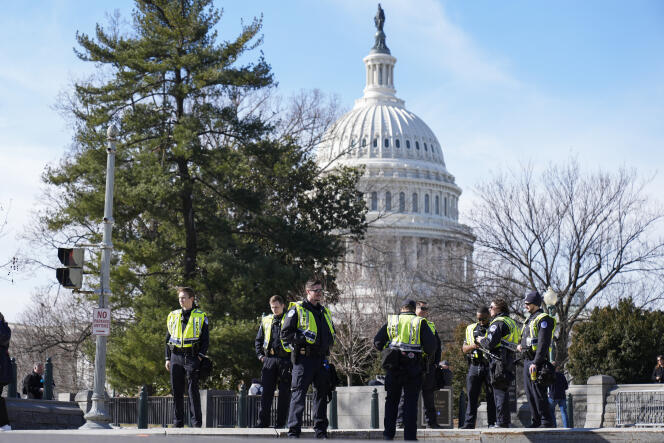


Section 3 of the 14th Amendment to the US Constitution, consisting of two sentences comprising 109 words from 1868, is marked by significant ambiguity. The Supreme Court examined this section in a landmark hearing on Thursday, February 8. At the end of the debate, the nine justices will have to decide whether Donald Trump, favorite in the Republican primaries, should be disqualified due to his attempt to prevent the peaceful transition of power during the election of Joe Biden in 2020 and his involvement in the storming of the Capitol on January 6, 2021. Truth be told, there is little suspense. The hypothesis appears unlikely, given the skepticism expressed by the judges in their questions and remarks, transcending the typical divide between conservatives and liberals.
It became clear during the two-hour debate that the justices were not convinced by the legitimacy of the Colorado Supreme Court's December decision to exclude Trump from the race for the Republican nomination in the state. A week later, Maine's secretary of state followed suit, while dozens of similar petitions across the country were rejected by local authorities.
Most of the arguments before the Court focused on three points, namely the content of Section 3 of the 14th Amendment, state prerogatives and the possible consequences of disqualification. Meanwhile, the actual nature of the events of January 6 was barely touched on, apart from one striking exchange between Justice Ketanji Brown Jackson and Trump's lawyer, Jonathan Mitchell. "This was a riot. It was not an insurrection. The events were shameful, criminal, violent, all of those things. But it did not qualify as insurrection as that term is used in Section 3," said Trump's attorney, partially embarking on a path that his client never wanted to take.
Drafted in the wake of the American Civil War, section 3 of the 14th Amendment was designed to prevent the return of former Confederates to positions of responsibility. The text stipulates that a person who has taken an oath to support the Constitution "as an officer of the United States" may not be a member of Congress, serve as a grand elector or hold any office, civil or military, if he has engaged in insurrection or rebellion.
The imprecise wording of section 3 opens up a vast field of debate. Is the president just another officer of the United States? Who has the legitimacy to apply this text? And then, did January 6 constitute an insurrection, and if so, can we agree on Trump's direct responsibility?
You have 60% of this article left to read. The rest is for subscribers only.
